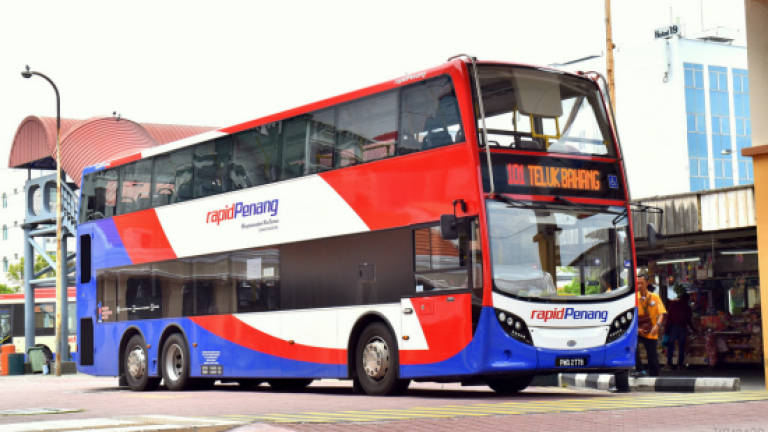A new way to tackle congestion

GEORGE TOWN: Public stage bus service provider RapidPenang hopes that its proposed new strategy in commuting can reduce traffic congestion in high density areas by between 20% and 40% during peak hours.
It is expected to be launched within the next two months pending approval from the Land Public Transport Commission, said Rapid Penang chief operating officer Mohd Azmi Abdullah.
The new strategy uses the same approach as the "Hub and Spoke" model where smaller feeder buses will gather passengers from various points in one locality hub. From that hub, the passengers would be dropped off at a centralised bus stop.
And from there, a pool of bigger buses will then congregate to pick up the passengers in stages from these designated bus stops before driving to the final interchange stop, which is the main public bus terminal in Komtar.
Azmi explained that by doing this there would be lower frequencies of all public buses travelling into town during peak hours but there would be a bigger load of passengers aboard the larger RapidPenang buses.
"And if there are no passengers at that juncture, the buses will not ply the route. The main pick up would be before, during and after office hours," he told theSun.
At the same time, RapidPenang frees up space on congested roads in town by hauling more passengers aboard the larger buses.
It has proven to be effective in other countries, hence the inspiration for RapidPenang to try it out in the state.
If given the nod by commuters and the relevant authorities, RapidPenang expects a reduction by up to 40% in congestion during peak hours, Azmi noted.
The "Hub and Spoke" model has been known to improve logistical needs in the aviation and shipping industry.
Citing an example, he said North American airlines started using the model in their daily operations in the 1970s where flights are routed through the (smaller pick-up points) before they are transferred to the hubs (central airports).
It was also known to have lowered operational costs for the service provider, Azmi said.
In Penang, the new approach would first start in April at Air Itam, the sprawling working class neighbourhood that is notorious for its traffic crawls and narrow roads.
Air Itam will represent the pilot project and if successful, RapidPenang will expand it to the entire island.
Traffic congestion is a key area of dispute between the public and authorities; and Penang continues to struggle to address it after the state government seemed unable to kick start its ambitious RM30 billion Penang Transport Masterplan.
At the same time, the state is also embroiled in a controversy surrounding the RM6.3 billion cross-channel undersea tunnel.
RapidPenang has a fleet of 330 buses of different models and sizes. It serves an average of 80,000 passengers daily.